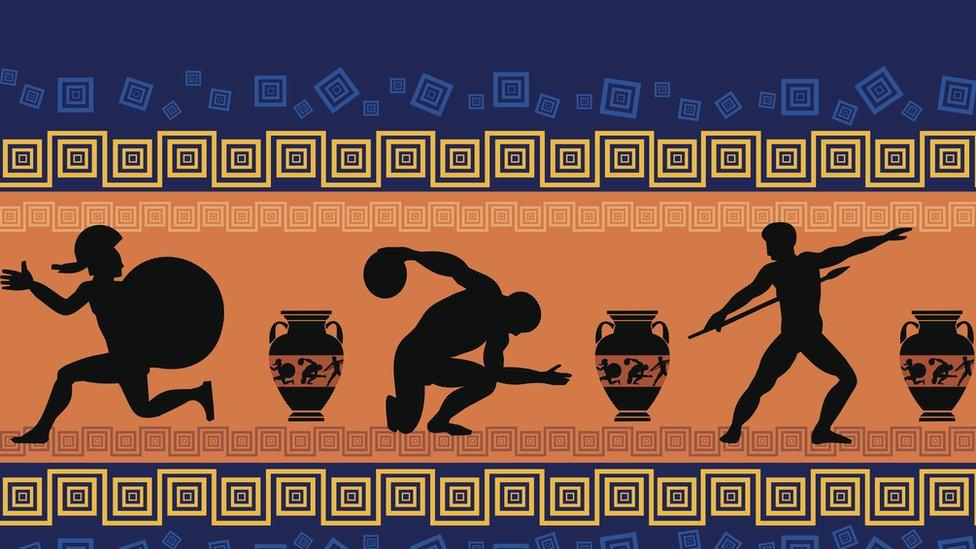Tokyo Olympics: Everything you need to know about the 2020 Olympics
- Published
- comments
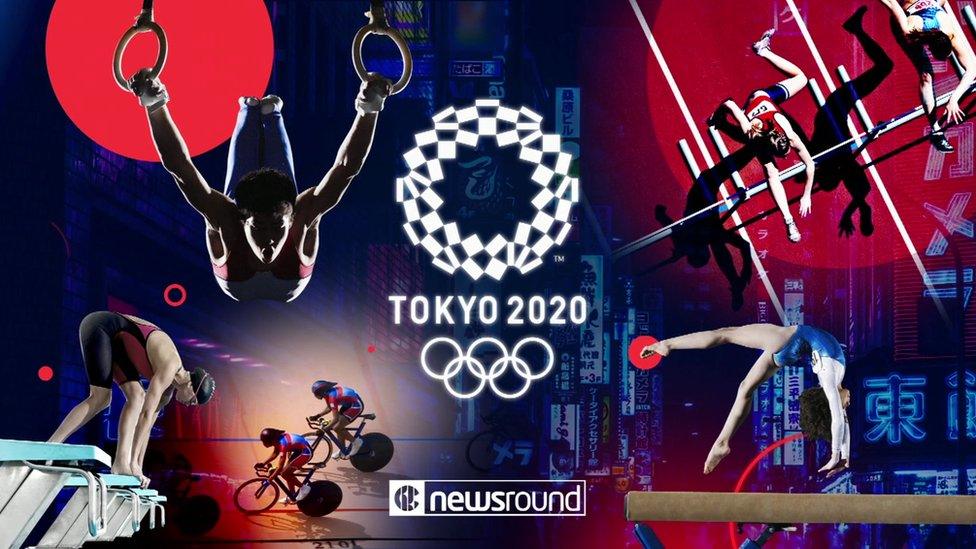
It's been a long wait, but the Tokyo Olympic Games are finally here!
Postponed for a year because of the global coronavirus pandemic, the Summer Olympics officially started on 23 July and finish on 8 August.
Japan's capital city, Tokyo, has welcomed over 11,000 of the world's best athletes to compete, but it'll be a particularly unusual Olympics because fans won't be allowed to attend.
Here's everything you need to know about the Tokyo Olympic Games.
When do the Tokyo Olympics start and what's the schedule?
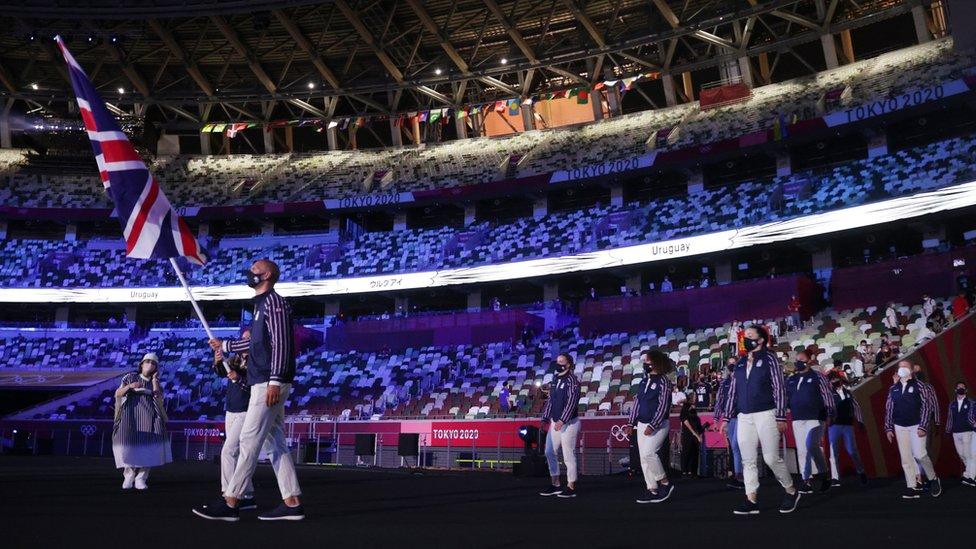
The Tokyo Olympics officially started with the opening ceremony on 23 July. The 17-day event will finish on 8 August with the closing ceremony.
Some events, including the softball and the men's and women's football tournaments, began on 21 July, before the games officially started.
The first medals will be handed out on 24 July, with the women's 10 metre air rifle final the first of 11 medal events that day.
The first week or so will be dominated by swimming and gymnastics. The swimming competitions run from 24 July through to 1 August.
The gymnastics competitions run from 23 July to 3 August.
Track and field events begin 30 July and conclude with the men's marathon 8 August, the final day of the Olympics.
Lots of Olympic tournaments run throughout the entirety of the Games, including basketball, baseball, softball, volleyball, water polo, soccer and beach volleyball, and don't award medals until the final days.
What time can I watch the Tokyo Olympics?
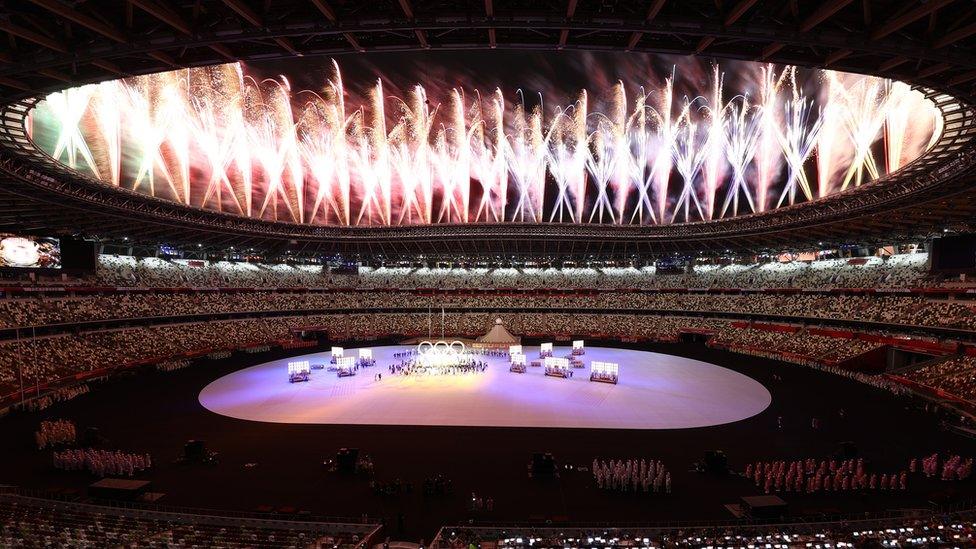
Tokyo is eight hours ahead of the UK, so the timings are a bit more unusual than we've been used to in recent Olympics.
The BBC will broadcast 350 hours of Olympics coverage on television.
Most events will take place between 12am and 3pm in the UK.
For example, Adam Peaty will be going for gold in the 100m breaststroke on 26 July. The session will start at 2.30am UK time.
Dina Asher-Smith will be going for gold in the women's 100m sprint on 31 July at 2:50pm UK time.
But don't worry if you miss anything. There will be loads of highlights programmes across the BBC, online and on TV.
What are the new sports at the Tokyo Olympics?
Ricky chats to Sky Brown
There will be a record 339 medal events held across 33 sports, with five new sports.
The five new sports are karate, skateboarding, sport climbing, baseball/softball and surfing.
Baseball and softball technically aren't completely 'new' sports at the Olympic programme, but they haven't been contested at a Games since Beijing 2008.
Almost half - 48.8% - of the athletes competing at the Tokyo Olympics are women, which is a record number!
Which British Olympic athletes should I be watching out for?
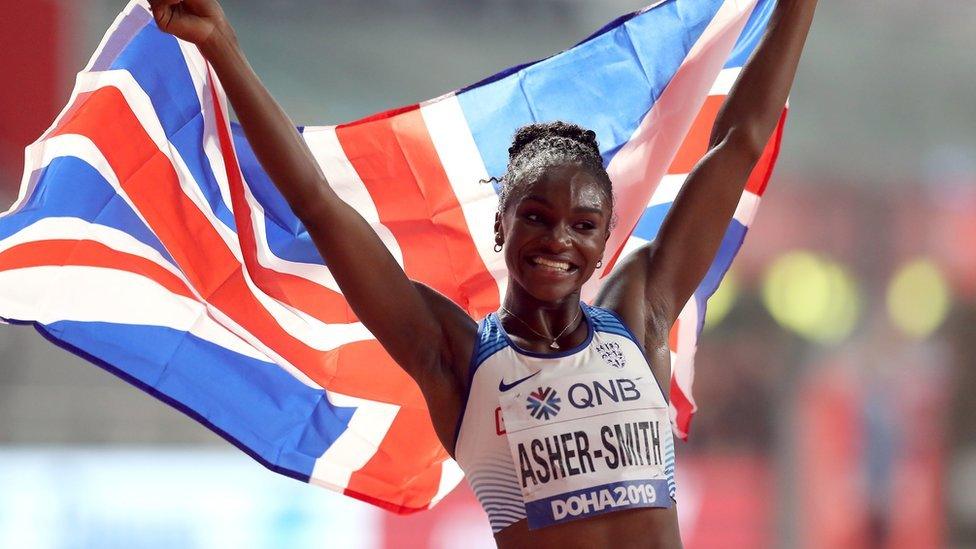
Dina Asher-Smith is a big medal hopeful for Great Britain in the 100m and 200m sprint events
For the first time in 125 years, Team GB have chosen more female athletes than male to compete in an Olympics.
There will be British representatives in 26 of the 33 sports in Tokyo.
Great Britain won 67 medals at the last Olympics in Rio. There's a hope that they can achieve between 45 and 70 this time round.
Skateboarder Sky Brown, GB's youngest Olympian at just 13, is a medal contender in the women's park event.
Swimmer Adam Peaty (who's really rather good) is favourite to pick up another gold in the 100m breaststroke swimming event.
Gymnast Max Whitlock (pommel horse) and taekwondo star Jade Jones are also tipped to retain their gold medals from Rio.
Sprinter Dina Asher Smith - who has been a face of the GB Olympic team - is a medal hopeful in the 100m and 200m sprint events. She's the current World Champion in the 200m, and won silver in the 100m in 2019.
Sailor Hannah Mills and rower Mohamed Sbihi led Team GB into Friday's opening ceremony, carrying the flag.
Which international stars should I watch out for at the Tokyo Olympics?
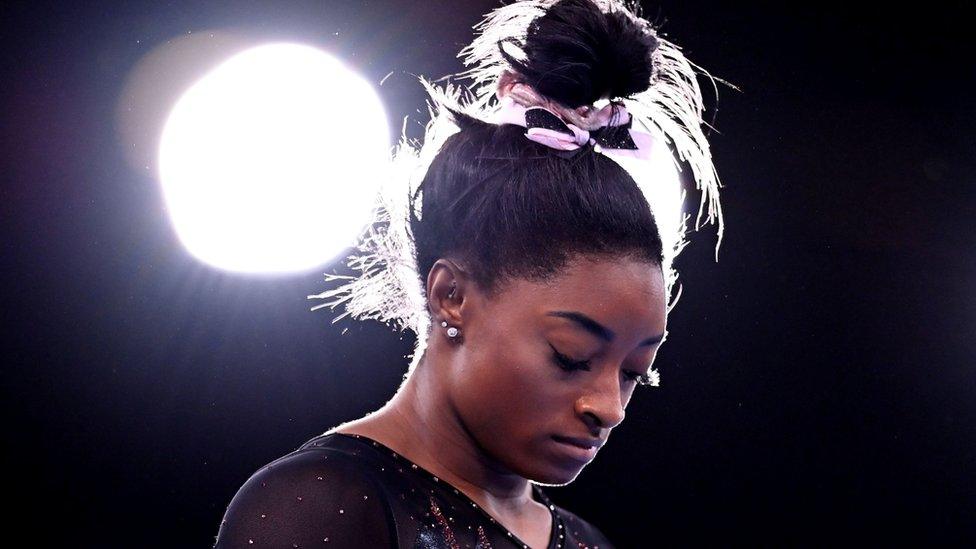
American gymnast Simone Biles is the stand out athlete at the Tokyo Olympics
American gymnast Simone Biles was unbelievable in Rio five years ago.
The 24-year-old won four gold medals and one bronze at her debut Games and is set to compete in all five events again.
If she manages to defend her all-around title she would be the first Olympic gymnast to do so since 1968.
In the athletics, Jamaica's sprinting legend, Shelly-Ann Fraser-Pryce, will be hoping to win her seventh Olympic medal.
Serbia's tennis world number one, Novak Djokovic, has won all three Grand Slams so far this year and will be hoping to add an Olympic gold to his haul.
If he wins the gold and then the US Open title, he'll have achieved a Golden Grand Slam - Wimbledon, French Open, Australian Open, US Open and Olympic gold medal. That's only ever been done by one tennis player ever, Steffi Graf. She won all four slams and gold at the Seoul Olympics in 1988. Greats like Roger Federer, Rafael Nadal and Serena Williams have won Olympic medals, but they've never managed to win everything in one season.
New Zealand Laurel Hubbard will become the first ever transgender athlete to compete at the Olympics in an individual event when she competes in the weightlifting.
How has the coronavirus pandemic affected the Tokyo Olympics?
Masks at the ready - It's time for the Olympics!
It was announced on 8 July that spectators won't be allowed into any events taking place in Tokyo during the Games.
This means stands in the competition will be empty. There are a few events outside Tokyo which will allow spectators but they will have to be residents of Japan - meaning no fans can travel to the country to watch the events.
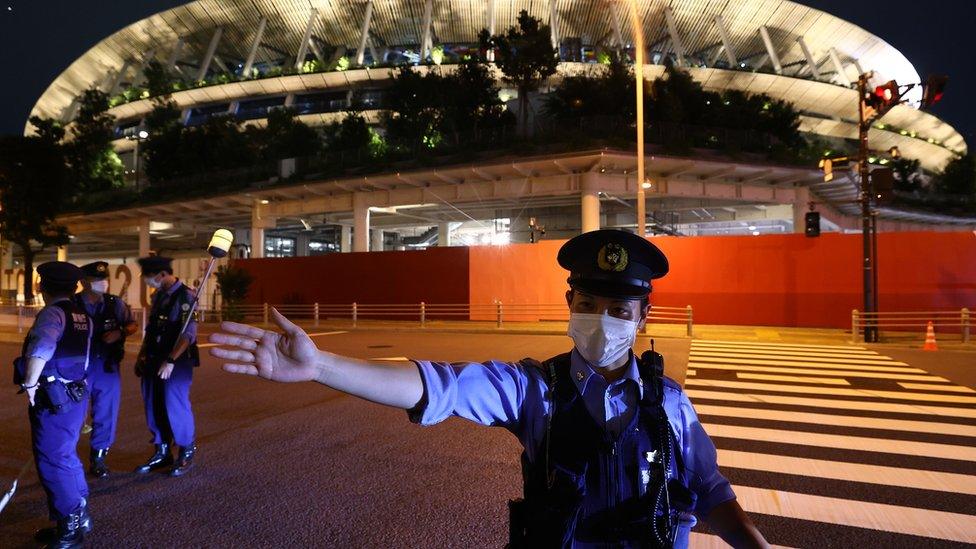
There will be no fans at the Toyko Olympics and there's a strict policy on wearing masks
The athlete experience will also be different from other Olympics.
Normally, athletes are encouraged to mix and mingle in the Olympic Village but worries over coronavirus transmission means this won't be allowed.
Athletes have to do regular Covid-19 tests, they aren't allowed to stay in the Olympic Village for the duration of the Games and must leave after their participation in the competition finishes.
They have to stay in bubbles, they aren't allowed to use public transport or visit non-Olympic sites, including bars, restaurants, shops and tourist destinations.
- Published1 July 2021
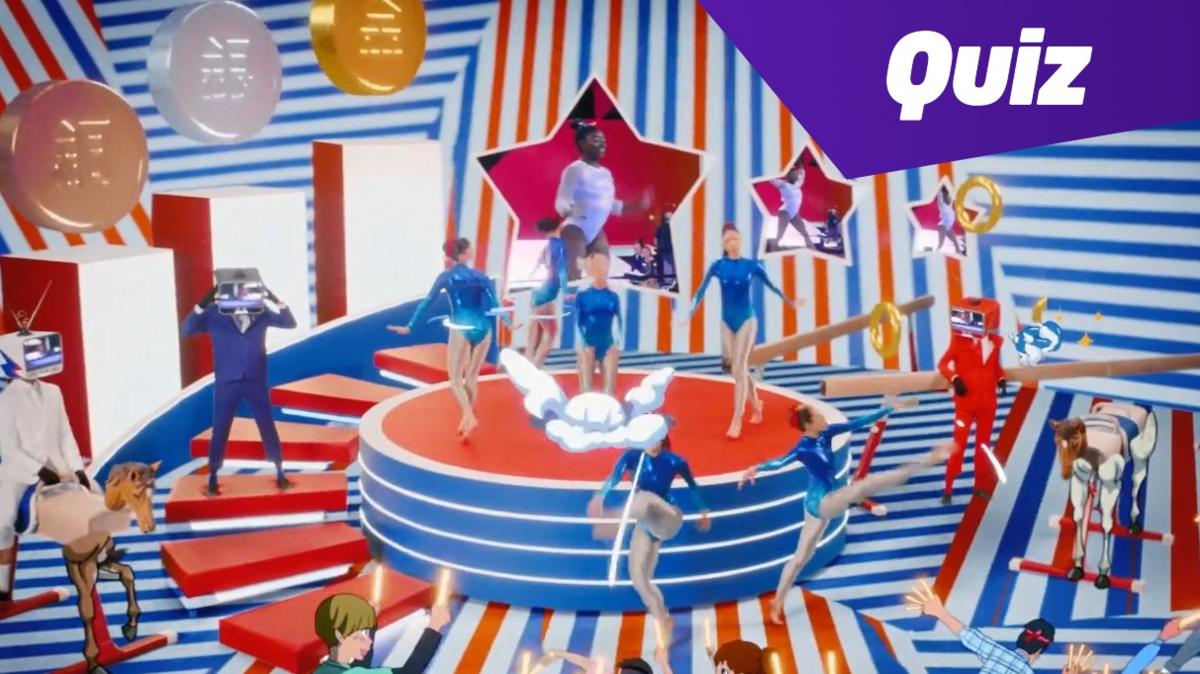
- Published4 August 2021
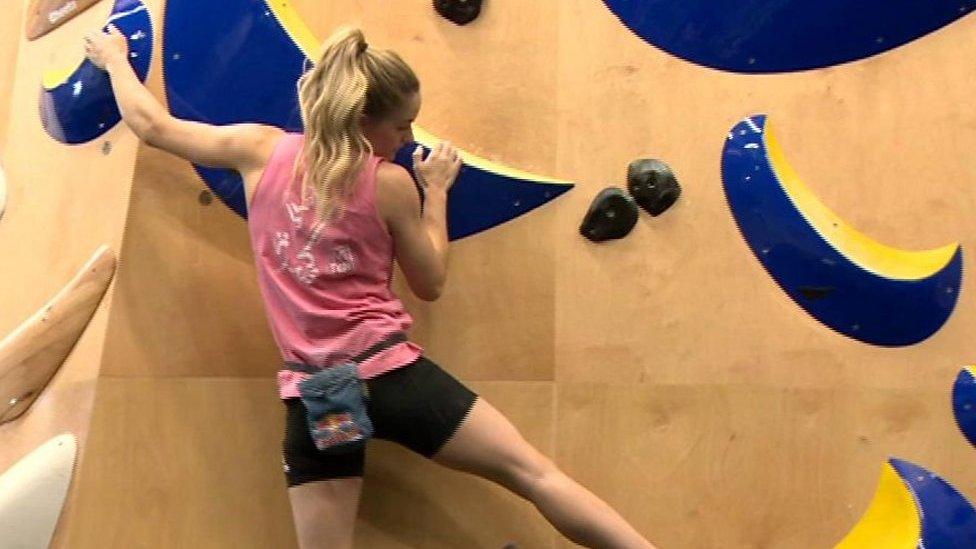
- Published21 July 2021
- Published19 July 2021
